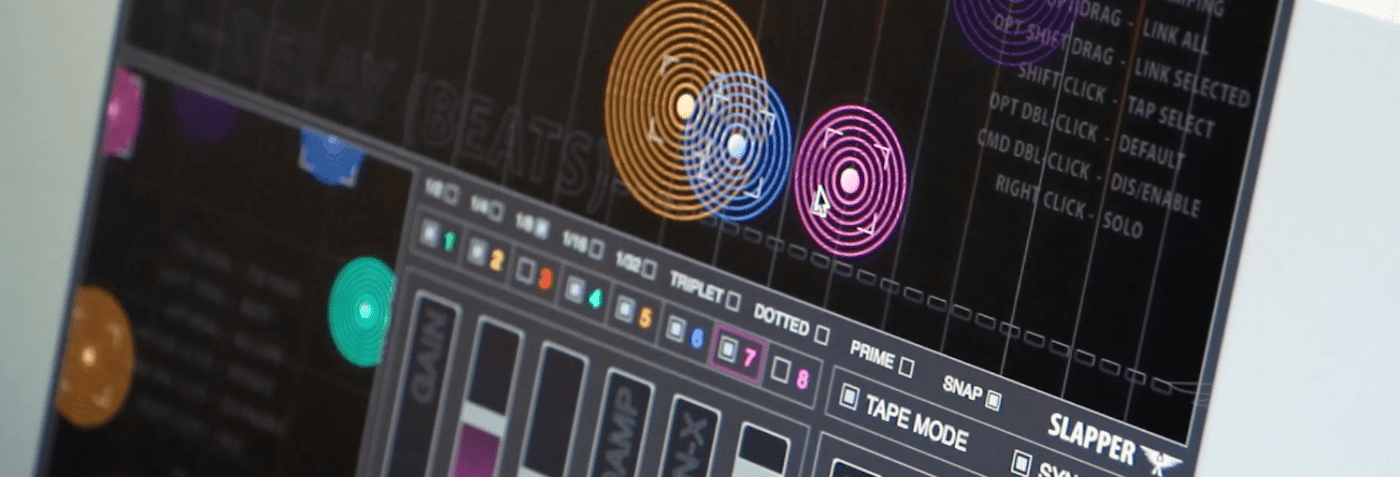Originally designed for the post-production market, Slapper has been recently updated to appeal to music makers.
The Cargo Cult is a boutique audio software developer based in Wellington, New Zealand. The majority of the company’s products are developed and distributed by Justin Webster, who has a background that includes working on Lord of the Rings, The Hobbit and District 9. While Justin’s background has perhaps inevitably meant Slapper is a great plugin for film post-production, it also has vast potential as a music processor.
Slapper is a multi-tap delay which is now available as both Slapper and Slapper ST (stereo). Since its initial inception in 2015 as a surround sound delay plugin, this latest release has optimised most of its core features for music production – including the audio processing, the filters and the overall user experience. Multi-tap delay can sometimes seem daunting depending on the approach the effect takes, but Slapper’s user interface does a good job of removing the learning curve.
The GUI is defined by its colourful, object-orientated controls. Each tap can be individually controlled via eight separate parameters, either by moving the controls around the plugin window or by dialling in the required amount within the level meters at the bottom of the screen. Moving the visual controls around is the easiest approach, offering an effective and intuitive take on a potentially complex effect. To get a sense of the plugin’s sonic potential, it’s a good idea to explore the presets first. Slapper’s extensive range of presets includes tempo-synced settings, ambient echoes and ‘odd effects’. Moving the circular blocks around the screen to customise the presets allows you to hear the changes in real time and explore the sound of the effect. For vocal samples, the ‘basic exterior slap’ preset places the sound comfortably into a mix. For synths, there are a range of settings that can widen, filter, delay and place elements.
Some people like to use delay as an alternative to reverb and Slapper has the ability to create retro reverb-style effects broadly similar to what you might create with a tape delay unit like a Roland Space Echo. The plugin offers two modes of operation, Tape and Sync. In tape mode, the taps respond in the same way as analogue tape would when vari-speeded (i.e. pitch and time are interrelated). If you automate a change in time, the pitch will also change accordingly.
Overall, the purpose of Slapper appears to make programming delays a more visual process, in turn allowing the user to generate more complex delays. Whilst in many instances having eight delays under one roof might be overwhelming, Slapper’s visual approach does a fine job of giving the user more control and creative freedom. In terms of where it sits within the marketplace, there are obvious overlaps with plugins from Logic’s free Delay Designer through to commercial options such as the Super Tap series by Waves. Slapper doesn’t go down the route of extensive modulation controls, but its GUI places it definitively at the more user-friendly end of the scale. It’s hard to highlight any obvious shortcomings in terms of functionality as the plugin really does deliver on its promise. At $139 it’s priced in the higher bracket for a plugin, but this reflects its versatility, vast preset banks and high-quality sound.
The Verdict
Price: $139
The Final Word
A world of opportunities at your fingertips.
